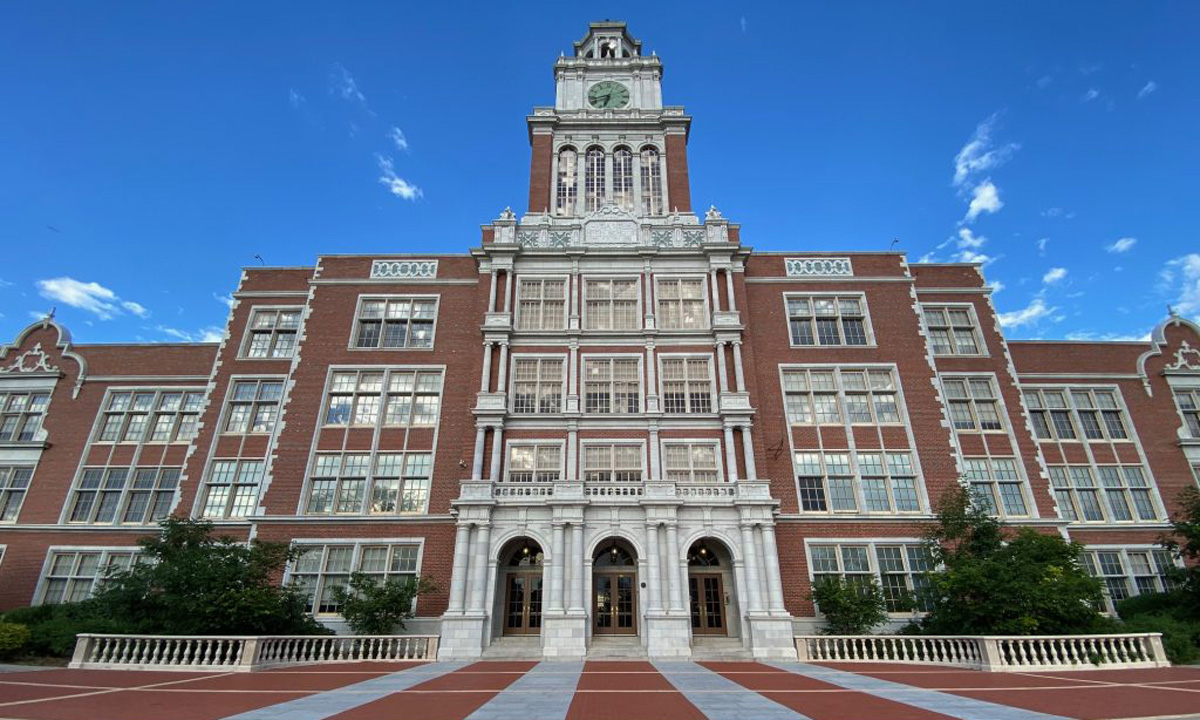Return of Armed Officers Part of Long-Term Denver Schools Safety Plan
Final draft of plan includes proactive measures to prevent violence.

Get stories like this delivered straight to your inbox. Sign up for The 74 Newsletter
Denver Public Schools leaders highlight how they plan to transition armed police officers back into everyday life for students and staff, among other changes, in the final draft of the district’s new long-term safety plan.
Throughout the next school year, DPS will bring armed police, known as school resource officers, back to its campuses after the district’s school board voted 4-3 on the policy earlier this year. Members who voted against the policy emphasized how having armed police in schools disproportionately affects students of color, which is why the board originally took SROs out of the district in 2020.
Superintendent Alex Marrero will have discretion to remove SROs who do not follow district policy, and the district plans to monitor citations and arrests to determine if marginalized individuals are disproportionately interacting with officers. Marrero told Chalkbeat Colorado officers will return to the 13 schools where they were stationed this spring.
The new safety plan follows multiple instances of gun violence in the district this year, particularly an incident at East High School in March, when a student shot two administrators. The DPS Board of Education the next day held an emergency meeting. The members unanimously voted to temporarily bring back armed police officers to schools and directed Marrero to create a long-term safety plan.
Scott Pribble, a spokesperson for the district, said that over the next school year, families will see more mental health resources and support in addition to the return of school resource officers at the district’s secondary schools. Staff will also undergo additional safety training throughout the summer, and the district will conduct safety audits.
In an effort to increase accountability for SROs, the board will review data on citations and arrests quarterly and will need to approve them.
Interpreting the policy
The plan is broken down into three focus areas: personal conditions, school conditions, and system conditions. It highlights the current state of a variety of safety practices and protocols across the district and sets goals for what it hopes the future will look like for each tool used to improve safety.
Personal conditions include the mental, social, emotional, physical and behavioral health and safety of each person within the district, as the district wants to provide support that can help each student and staff member feel safe.
“DPS recognizes that addressing youth violence and student safety requires a proactive and preventative approach,” the plan says.
School conditions look at how those in each building work to create a safe and welcoming environment. Each school will also have an individual safety operational plan and a school emergency team, as well as regularly conducted safety audits.
“When creating these school conditions, DPS seeks to foster caring, consistent relationships among both individuals and groups, including students, educators and families,” the plan says. “Relationships like these promote resilience, serve to protect people, and reduce the impact of chronic or acute stress, ultimately creating school buildings where all people and the community can thrive.”
The system conditions portion of the plan looks at systems both within the school community and outside that impact school and student safety. Here the plan outlines the possibility of adding weapons detection systems, which will be decided on a school-to-school basis, youth violence prevention at the elementary school level, community hubs, and the importance of out-of-school engagement.
“The issues throughout the neighborhoods are also reverberated in the schools throughout the district,” the plan reads. “DPS takes an active role in partnering with the City of Denver, parents, students and community members to help address many of the issues; However DPS is constantly evaluating different ways we can support not only the learning environment of our students, but also the individual support systems of our students.”
The next step in implementing the plan is for Marrero to draft a “reasonal interpretation,” which the district spokesperson said is the superintendent’s understanding of how he will be evaluated by the board in carrying out the policies they approved. Then specific goals and metrics for measuring success will be developed with the board from there.
Colorado Newsline is part of States Newsroom, a network of news bureaus supported by grants and a coalition of donors as a 501c(3) public charity. Colorado Newsline maintains editorial independence. Contact Editor Quentin Young for questions: [email protected]. Follow Colorado Newsline on Facebook and Twitter.
Get stories like these delivered straight to your inbox. Sign up for The 74 Newsletter

;)